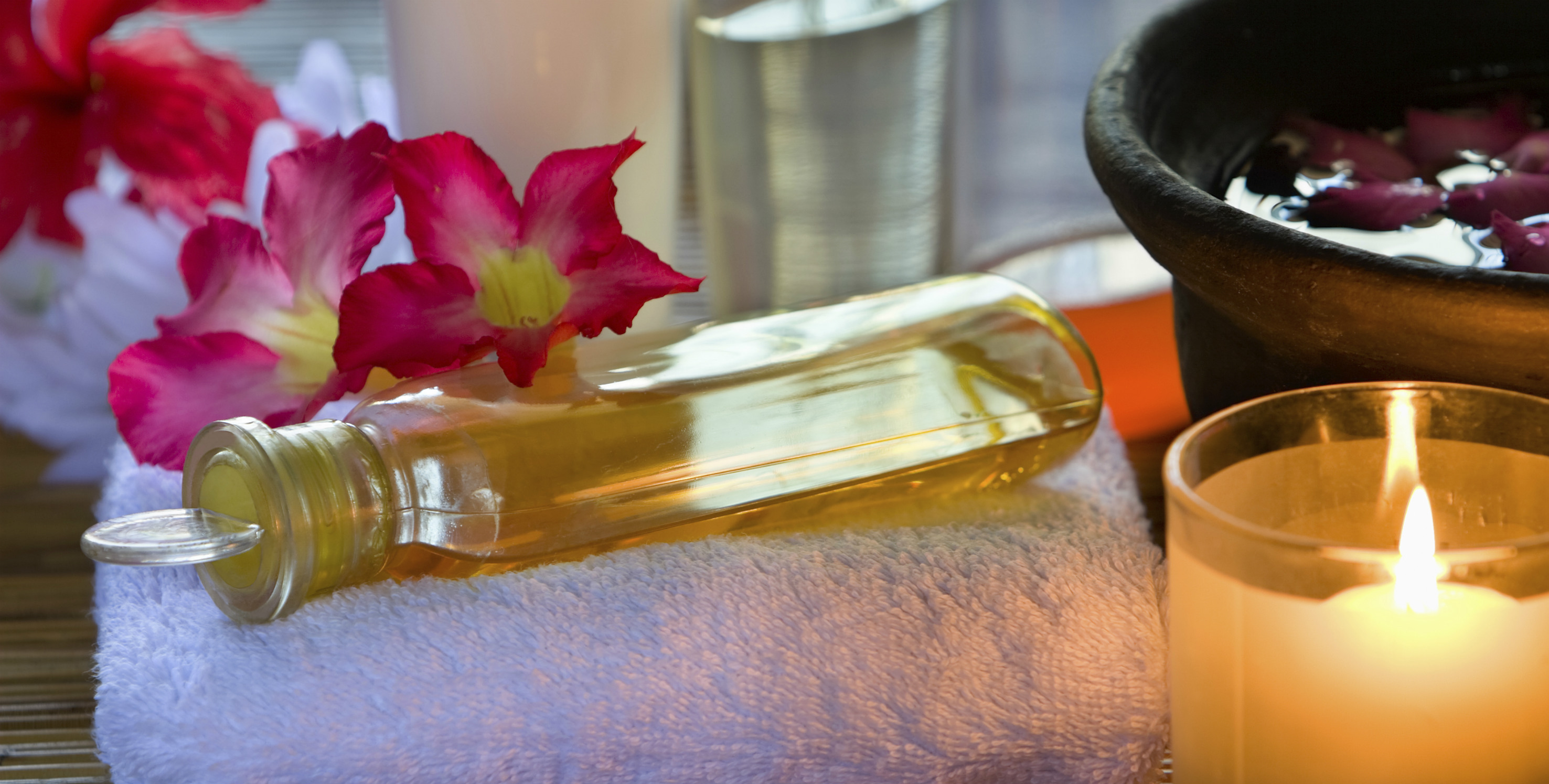
Aromatherapy is the use of plant oils for preventative care, healing and general physical well-being. Essential oils can be used in different ways, including massage, bathing and inhalation.
When used in massage, essential oils are not only inhaled, but absorbed through the skin as well. They penetrate the tissues and find their way into the bloodstream where they are transported to the organs and systems of the body. Different oils are thought to act on the body in different ways, having a relaxing, energising, calming or uplifting effect.
Popular because of its non-invasive nature, aromatherapy is used for a wide range of health problems such as anxiety, stress, insomnia, fatigue and stress related conditions. Many people find it useful in treating arthritic and rheumatoid pain, headaches, and pre-menstrual tension. It is sometimes available in maternity services and is widely used in palliative and cancer care in hospitals and hospices.
Some people also use aromatherapy just for its relaxation effects.
After-care Advice
It is recommended that you relax and rest for as long as possible, avoiding alcohol and a heavy meal for two hours. The body may be stimulated by the treatment to remove toxins. Symptoms such as thirst, increased urination, headache, tiredness or feeling invigorated and energised are all possible signs of this.
Drinking extra water is suggested to minimise symptoms and enhance the benefits of the treatment. Treatments may relieve physical symptoms, however it is important to continue with all prescribed medication.
If you have received an aromatherapy massage it is beneficial not to shower and bath for 12-24 hours in order to let the essential oils absorb through the skin.
